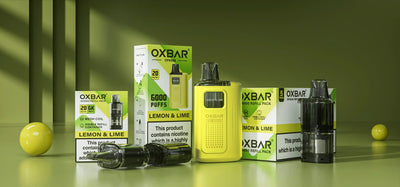According to BBC, In recent months, the UK's legislative efforts to address the growing concerns surrounding youth vaping and public health have intensified. The government's proposed Tobacco and Vapes Bill, which sought to introduce a ban on disposable vapes by April 2025 and implement a new tax on vaping products, was poised to make significant changes to the vaping landscape. However, with the dissolution of Parliament for the general election, the fate of these proposed measures remains uncertain.
The push to regulate vaping products comes amid increasing evidence that youth vaping is on the rise. According to a survey by Action on Smoking and Health (ASH), nearly 8% of 11-17 year olds in the UK now vape, doubling from 4% in 2020. This increase is largely driven by the availability of cheap, brightly colored disposable vapes that appeal to younger demographics. As a result, vaping has become twice as common as smoking among children in the UK.
The proposed ban on disposable vapes is part of a broader strategy to reduce youth vaping. The government also plans to make vapes less attractive to young people by restricting flavors designed to appeal to children, introducing plain packaging, and moving vape displays behind the counter in retail stores. Additionally, the government seeks to increase fines for retailers who sell vapes to minors.
The new tax on vaping products, set to be introduced in October 2026, would impose duties based on the nicotine content of the vaping liquid. The proposed rates include £1 per 10ml for nicotine-free liquids, £2 per 10ml for liquids containing 0.1-10.9mg of nicotine, and £3 per 10ml for liquids with 11mg or more of nicotine. This tax aims to ensure that vaping remains a cheaper alternative to smoking while discouraging excessive nicotine consumption.
While the government's plans have garnered support, including from Labour, which may reintroduce the bill if it wins the election, there are still concerns about the potential environmental impact of disposable vapes. Campaigners have highlighted the challenges of safely disposing of the materials and chemicals used in vapes, including their lithium batteries. Although recycling options exist, only 17% of vapers currently recycle their devices, leading to an estimated five million disposable vapes being discarded each week in the UK.
As the UK continues to navigate the complexities of vaping regulation, it is clear that the debate over public health, youth protection, and environmental sustainability will persist. For those interested in staying informed about the latest developments in vaping legislation and exploring a wide range of vaping products, Vape Offers provides up-to-date information and a selection of quality vaping options.
To learn more about the proposed vaping regulations and their potential impact, visit the BBC News article.


